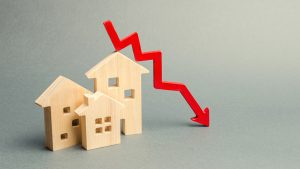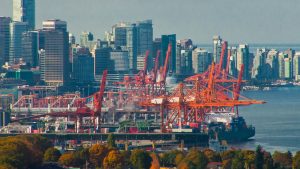China’s economic slowdown and difficult post-COVID-19 recovery have pushed the country’s government towards more developer-friendly financial policies.
In material prepared for the recent Politburo meeting, the motto “houses are for living in, not for speculation” was omitted. The government’s 21-point plan to revive the construction industry was approved at the end of 2022. However, the success of these measures depends on their proper and consistent implementation.
This year, the Chinese economy is growing slower than expected due to the impacts of the zero COVID policies introduced by the government and its attempts to cool the overheated property market. Strict mass lockdowns disrupted the manufacture and shipment of goods, a detriment to foreign trade and local economic development. As a result, Beijing missed its 2022 target for GDP growth of 5.5 per cent by nearly two percentage points.
However, China’s economy has been negatively influenced not only by past pandemic rules and regulations but also by the forced contraction of the real estate sector.
Over the last decade, the sector’s expansion resulted in an unprecedented rise in house prices due to growing middle-class demand and massive speculation. Long before the pandemic, the Chinese government started to curb real estate speculation and lower real-estate-related debt thresholds for developers and households.
China’s property price-to-income ratio has more than doubled in the last decade. According to Refinitiv, the progression of the ratio from around 14 in 2013 to 32 in 2023 indicates that speculation has significantly boosted house prices over time. With property costs growing much faster than the average income, those earning less were pushed out of the property market.
The austerity measures implemented by the government undermined construction growth and influenced major developers’ ability to repay their massive debts. In 2020, regulators initiated “the three red lines” policy that compelled developers to share additional information about their leverage.
This policy established limits on the cash-to-short-term debt ratio (no less than one), the liability-to-asset ratio (no more than 70 per cent), and the ‘net gearing’ ratio (fewer than 100 per cent). If a developer observed these rules, it was allowed to raise its debt by an additional 15 per cent. When the policy was first introduced, more than 95 per cent of developers could not match these criteria.
This policy and other measures resulted in China’s real estate sector experiencing paralysis as private developers like Evergrande, Kaisa, Sunac and Shimao had difficulties repaying extensive domestic and international loans.
For example, Evergrande announced it incurred an $81 billion loss between 2021 and 2022. Efforts to restore China’s real estate sector are coming too late to save Evergrande which has just filed for bankruptcy protection in the U.S.
The current slowdown of economic growth has pushed the Chinese government towards easing the sector’s regulations.
Analysts believe immediate action is needed to prevent continuing contraction of the country’s economy.
Chetan Ahya, Morgan Stanley’s chief economist, has noted, “if the challenges in the property sector deepen and bring risk aversion in the financial system and affect consumer confidence, this will cause a deeper slowdown in China.”
At the same time, Li Xunlei, chief economist of Zhongtai Securities, believes unresolved and unsustainable land sales and local government debt pressure will have dire consequences for the Chinese economy.
The Chinese government is attempting to revive the real estate sector by issuing shares and debt extensions and granting support to developers working on politically sensitive projects. For example, the government plans to build dual-use facilities that can be converted into quarantine centres or hospitals during potential future health emergencies.
A 21-point plan to revive the industry was announced in November 2022 by the central bank, the China Banking and Insurance Regulatory Commission and the People’s Bank of China. A month later, these banks contributed 250 billion yuan to finance bonds for real estate developers.
Meanwhile, the government loaned 100 billion yuan to increase rental housing supply. Further, local governments are encouraging residents to buy additional homes to stabilize the real estate sector. In addition to monetary injections, housing developers are being allowed to postpone debt payments by 12 months.
According to Pinpoint Asset Management’s chief economist, Zhang Zhiwei, the future of the Chinese real estate sector appears promising as “the government has recognized the importance of policy change in this sector to stabilize the economy.”
Discussions during the Politburo meeting on July 24 indicated further “counter-cyclical” policy adjustments for the real estate sector are to follow.
Omitting the official slogan “houses are for living in, not for speculation” from the meeting’s readout suggests the government is ready to move past its crackdowns on the sector. However, critics believe these actions will not have a significant impact unless concrete steps are implemented in a systematic way.
Dmytro Konovalov has over 10 years of experience in equity research and analysis for global markets at leading international financial institutions.










Recent Comments
comments for this post are closed